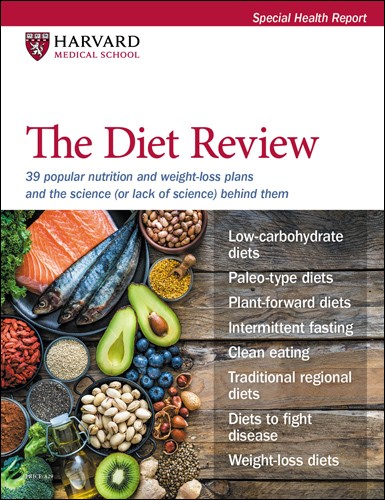More benefits of a Mediterranean diet
News briefs
- Reviewed by Anthony L. Komaroff, MD, Editor in Chief, Harvard Health Letter; Editorial Advisory Board Member, Harvard Health Publishing

We have lots of evidence that a Mediterranean diet may help stave off heart disease, heart attacks, and strokes. But what if you already have heart disease? A randomized trial published May 14, 2022, in The Lancet offers insight. It involved a thousand people in Spain who had coronary artery disease (plaque buildup in the heart's arteries). Participants were randomly divided into two groups. One group ate a Mediterranean diet and the other a low-fat diet. Both diets emphasized fruits and vegetables. However, the Mediterranean diet emphasized food high in monounsaturated fats — particularly olive oil and nuts — along with legumes, whole grains, poultry, and fatty fish. The low-fat diet involved fewer monounsaturated fats, only lean versions of fish and poultry, and more calories per day from carbohydrates, particularly whole grains, legumes, and potatoes. People in both groups consulted with a dietitian regularly. Seven years later, people in the Mediterranean diet group had a 26% lower risk of having a heart attack or stroke, compared with people in the low-fat group. Once again, an excellent study demonstrates the benefits of the Mediterranean diet and its "good fats."
Image: © Lilechka75/Getty Images
About the Author

Heidi Godman, Executive Editor, Harvard Health Letter
About the Reviewer

Anthony L. Komaroff, MD, Editor in Chief, Harvard Health Letter; Editorial Advisory Board Member, Harvard Health Publishing
Disclaimer:
As a service to our readers, Harvard Health Publishing provides access to our library of archived content. Please note the date of last review or update on all articles.
No content on this site, regardless of date, should ever be used as a substitute for direct medical advice from your doctor or other qualified clinician.
















